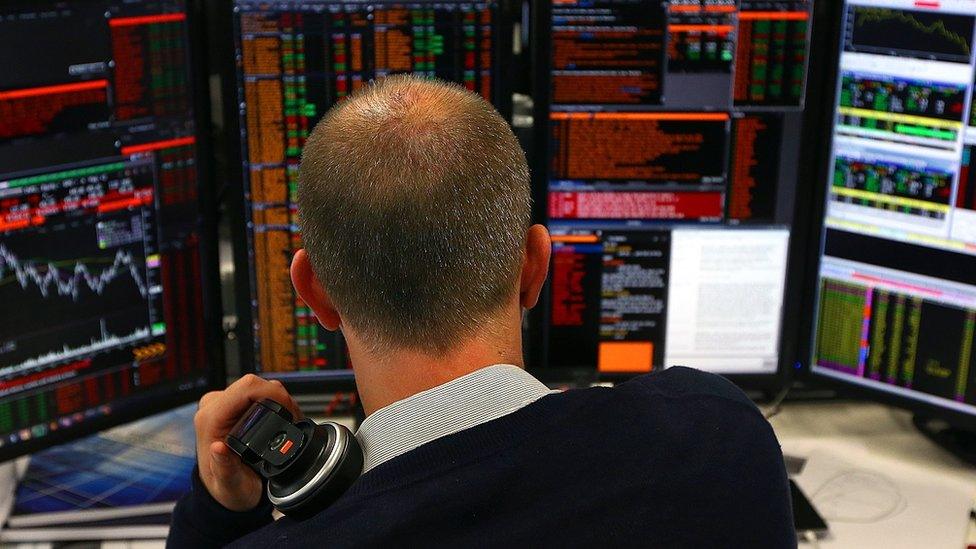Why rising shares aren't a sign of joy
- Published
- comments

The explanation for the surge is pretty straightforward.
Big companies like GSK, Rio Tinto et al make most of their money in dollars but report their profits in pounds.
As the pound falls to its lowest level against the dollar for 31 years, those dollar profits are worth more in pound terms.
A goldilocks scenario for big multinationals headquartered and listed in the UK: FTSE 100 rockets.
Simple.
But that is not the whole story. If you look further down the business league table, you will find that shares in midsize and smaller firms are also surging.
Fewer of them have foreign earnings so what's going on?
Income search
The explanation I've heard from several market experts goes something like this. If you believe we are headed for a "hard brexit" (leaving the single market), and you believe that will hurt the UK economy (which even Philip Hammond seems to accept in the short term), then it is more likely that the Bank of England will cut interest rates again and hold them at near zero for longer.
That makes it even harder for investors to make any income at all.
In the old days, they would buy bonds or put money on deposit. Not any more.
If you need income, then dividends from shares in companies - of all sizes - are that much more attractive.
We are in the peculiar but not uncommon position that fears over the economy push share prices UP.
Finally I should make two things clear.
First, the UK economy is yet to show any ill effects from the Brexit vote.
Nevertheless, the chancellor thought it wise to brace us for the potential rollercoaster ahead.
Second, markets are very far from being infallible. They got the referendum result spectacularly wrong so we should be careful about what they seem to be telling us now.
Markets seem be joining the following dots. 1: The greater priority placed on immigration control (which has emerged from the Tory Party conference) will 2: make it harder for the UK to get access to the single market. That would 3: hurt the UK economy, prompting the Bank of England 4: to cut rates further and so 5: the pound falls.
Theresa May and her ministers do not accept the link between (1) and (2). We won't know who is right for at least two years.